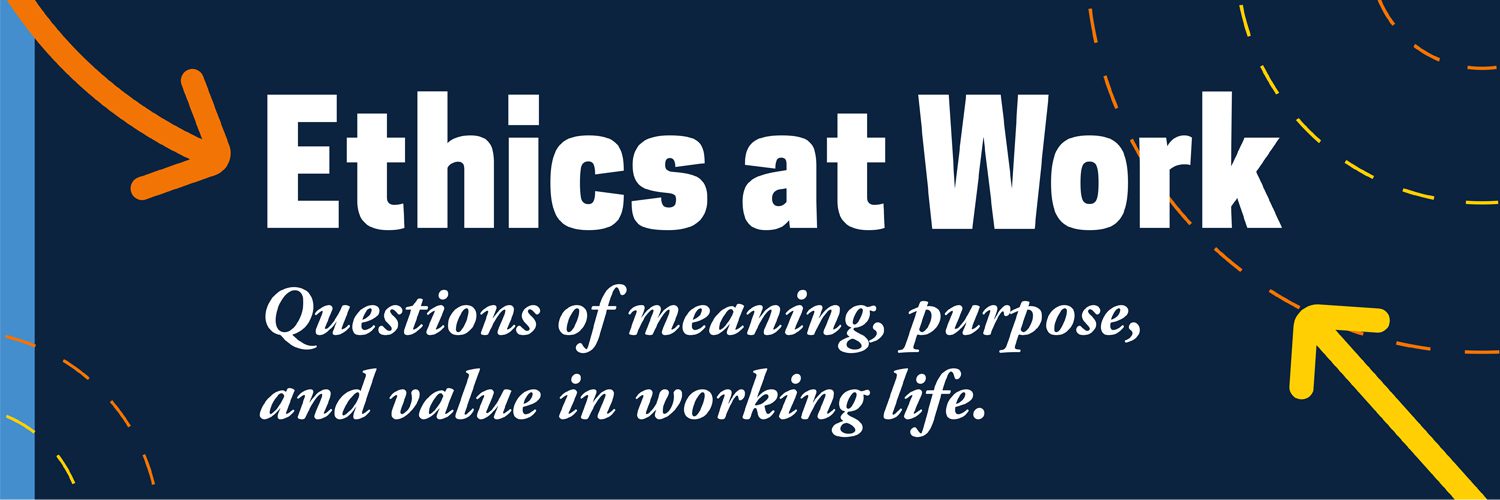The Psychology of Resilience and Burnout

In episode three of Ethics at Work, we are joined by Laura Miller-Graff ‘08, an associate professor of Psychology and Peace Studies at the University of Notre Dame. Prof. Miller-Graff’s work centers on the impact of violence on childhood development, and the human capacity for resilience in conflict settings. She’s concerned with questions of psychological well-being, post-traumatic stress, and the efficacy of interventions for violence-exposed individuals and communities. Through her work, she seeks to develop culturally appropriate, cost-effective psychosocial interventions, paying particular attention to vulnerable groups such as pregnant women and adolescents living amidst chronic sociopolitical conflict. We ask Dr. Miller-Graff to draw on her extensive research background in stress, resilience, and trauma, to help us think about stress and burnout in the workplace. With her expertise in investigating how various systems interact to promote or inhibit healthy development after exposure to violence, she shares insights about how the principles she’s uncovered can translate to corporate settings, where violence may not be physical, but the traumatic effects of chronic stress can nonetheless be detrimental. Along the way, the Ethics at Work team poses questions about stress (is it always bad?), burnout (how do psychologists think about it?), and happiness at work. Join us on Wednesday, August 9, 2023 for a fascinating take across disciplines on a topic relevant to anyone who’s experienced stress or burnout in their own working lives. The Ethics at Work podcast is edited and produced by Nat Todaro and Megan Levis. To learn more about the Ethics at Work project you can find us at ethicsatwork.nd.edu.
Listen to the Episode
Wednesday, August 9, 2023 8:00 am
In episode three of Ethics at Work, we are joined by Laura Miller-Graff ‘08, an associate professor of Psychology and Peace Studies at the University of Notre Dame. Prof. Miller-Graff’s work centers on the impact of violence on childhood development, and the human capacity for resilience in conflict settings. She’s concerned with questions of psychological well-being, post-traumatic stress, and the efficacy of interventions for violence-exposed individuals and communities. Through her work, she seeks to develop culturally appropriate, cost-effective psychosocial interventions, paying particular attention to vulnerable groups such as pregnant women and adolescents living amidst chronic sociopolitical conflict.
We ask Dr. Miller-Graff to draw on her extensive research background in stress, resilience, and trauma, to help us think about stress and burnout in the workplace. With her expertise in investigating how various systems interact to promote or inhibit healthy development after exposure to violence, she shares insights about how the principles she’s uncovered can translate to corporate settings, where violence may not be physical, but the traumatic effects of chronic stress can nonetheless be detrimental.
Along the way, the Ethics at Work team poses questions about stress (is it always bad?), burnout (how do psychologists think about it?), and happiness at work. Join us for a fascinating take across disciplines on a topic relevant to anyone who’s experienced stress or burnout in their own working lives.
The Ethics at Work podcast is edited and produced by Nat Todaro and Megan Levis. To learn more about the Ethics at Work project you can find us at ethicsatwork.nd.edu.
View EventMeet the Faculty: Laura Miller-Graf '08

Laura Miller-Graff is associate professor of psychology and peace studies and a core faculty member of the Kroc Institute for International Peace Studies at the University of Notre Dame.
Working within an ecological framework, Miller-Graff’s research seeks to understand how various systems (i.e. individual, family, and community) interact to promote or inhibit healthful development following violence exposure. With a focus on children who have multiple traumatic exposures, she investigates resulting patterns of resilience and psychopathology, including the development of post-traumatic stress symptoms.
In addition to conducting basic research on the effects of violence on development, Miller-Graff also seeks to identify effective intervention practices for children and families affected by violence. This line of work considers the status of psychosocial interventions currently available in international conflict settings and seeks to identify evidence-based intervention practices that facilitate resilience in families and communities. Specific aims of this work include identifying culturally appropriate assessment and treatment practices and developing efficacious and cost-effective psychosocial interventions that can be readily disseminated in conflict settings.
Detailed information about ongoing studies can be found at her research lab website, but Miller-Graff’s current projects focus on the intergenerational effects of violence against women, psychological care of pregnant, violence-exposed women and their young families, and individual and family-based psychosocial support programs for adolescents and young adults exposed to chronic sociopolitical conflict.
Miller-Graff’s recent work can be found in Peace and Conflict: Journal of Peace Psychology, the Journal of Traumatic Stress, Developmental Review, Psychology of Violence, the Journal of Clinical Psychology, and the International Journal of Behavioral Development. She also recently co-edited the volume Psychological Perspectives on Understanding and addressing Violence against Children (Oxford University Press). Miller earned a Ph.D. in clinical science from the University of Michigan in 2013.
Unpacking "The Burn Out Society": Prof. Blaschko on Byung Chul Han and Profound Boredom
Join us in this thought-provoking video as Professor Paul Blaschko from the University of Notre Dame delves into the core ideas presented in philosopher Byung-Chul Han’s influential book “The Burnout Society.”
Professor Blaschko explores the concept of burnout from a philosophical standpoint, critically examining Han’s claim of modern society’s increased susceptibility to it. In his analysis, he highlights Han’s characterization of our era as an “achievement society,” reflecting on how our relentless pursuit of productivity and accomplishment often leads to psychological exhaustion and disengagement.
Taking it a step further, Blaschko draws connections between Han’s arguments and the ancient philosophical debate about the superior way of life: one driven by action or one anchored in contemplation. This exploration helps us understand the role of contemplation in counteracting burnout, shedding light on Han’s notion of “profound boredom” as a requisite for genuine contemplation.
Additional Resources
Laura recommends:
- Ordinary Magic by Ann S. Masten
- Ann Masten’s Coursera Course on Resilience.
- The Burnout Society by Byung-Chul Han
